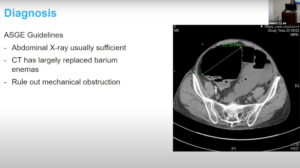NEW YORK (Reuters Health) – Disease-free survival is not improved after resection of stage III colon cancer when cetuximab is added to chemotherapy with leucovorin, fluorouracil, and oxaliplatin (FOLFOX), according to study findings published in the Journal of the American Medical Association for April 4.
“Patient enrollment began February 10, 2004, and was permanently halted on November 25, 2009, after the second planned interim analysis demonstrated a low probability that disease-free survival of the cetuximab group would surpass that of the (FOLXOX)-only group,” the authors report.
Dr. Steven R. Alberts, with the Mayo Clinic in Rochester, Minnesota, and colleagues explain that cure rates with surgery for stage III colon cancer are 50%, and this is improved with adjuvant FOLFOX chemotherapy. Furthermore, cetuximab and panitumumab provide additional benefit in patients with metastatic disease who have the wild-type KRAS gene.
The current trial looked at the use of cetuximab in the adjuvant setting. The team randomized 2686 patients with resected stage III colon cancer to receive 12 cycles of the modified sixth version of the FOLFOX regimen (mFOLFOX6) regimen with or without cetuximab.
The investigators found that 3-year disease-free survival in patients with wild-type KRAS was 74.6% in the chemotherapy-only group versus 71.5% (p=0.08) in the cetuximab group. Corresponding rates among patients with mutated KRAS were 67.1% versus 65.0% (p=0.38).
The addition of cetuximab to adjuvant chemo significantly increased the risk of grade 3 or higher adverse events (odds ratio 2.4; p<0.001) and of failure to complete 12 cycles of treatment (OR 1.6; p<0.001), the report indicates. "New approaches are needed to identify drugs that may be of benefit in adjuvant therapy,” Dr. Alberts and colleagues conclude, “because as shown in our trial promising activity in the metastatic setting did not translate into adjuvant therapy benefit and underscores the importance of performing clinical trials." The authors of an accompanying editorial agree with this “inescapable conclusion.” Dr. Neil H. Segal of Memorial Sloan-Kettering Cancer Center, and Dr. Leonard B. Saltz with Weill Cornell Medical College, New York, write: “The role of adjuvant chemotherapy does not involve treating the tumor that the surgeon has removed, but rather attempts to eradicate whatever occult micrometastatic disease may still be present after surgery. If there are no micrometastases, surgery is curative and adjuvant chemotherapy is unnecessary. If micrometastases are present, the long-term health of the patient will depend on whether the chemotherapy can destroy all remaining micrometastases." SOURCE: JAMA 2012;307:1383-1393,1431-1432.




